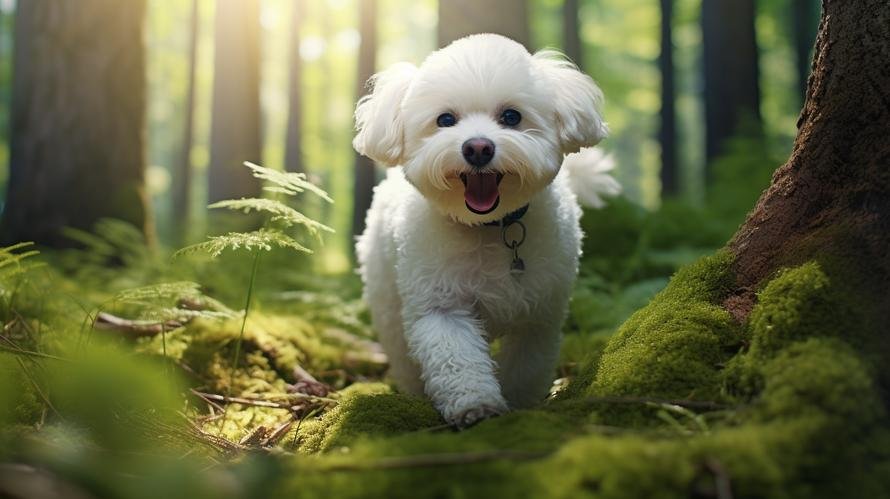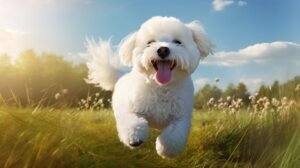Did you know the name ‘Bichon Frise literally means ‘curly lap dog’ in French? If you’ve ever seen one of these adorable pups, that translation will make perfect sense to you. Their cute white curls and diminutive size make them perfect for grabbing a cuddle on the sofa. But, you might be wondering, is a Bichon Frise a good first dog?
Why wouldn’t they be, right? Well, let’s unfold the pages of the furry world of Bichons.
These darling dogs are known for their good-natured temperament. They love to play and enjoy being the center of attention. More the merrier, as they say. If you’re the kind who revels in throwing a ball around your backyard or spending downtime with your furry companion, then a Bichon Frise could etch himself into your heart to become your BFF (Best Furry Friend).
Now, don’t be deceived by their size. The Bichon Frise, though small, is a sturdy little dog. They are generally healthy, assuming you’re careful to get your pup from a reputable breeder who tests for health issues like hip dysplasia and allergies. Their life span ranges from 12-15 years, which is a long-term commitment – one of the many reasons why Bichons could make a wonderful first pet.
If I saw you raising an eyebrow at the word ‘allergies,’ let me explain. Bichons are hypoallergenic, which means they’re less likely to cause an allergic reaction in people who are usually sensitive to dogs. Not a zero chance, mind you, but less likely. This could be the deciding factor if any of your family or friends have allergies. Wouldn’t it be nice to have a dog they could visit without a pocket full of tissues or allergy meds?
Moreover, Bichons don’t shed like other dogs. They are low on maintenance – occasional haircuts and regular brushing would keep their coat fluffy and clean. These curly lap dogs would save your furniture and clothes from the usual ‘hairy evidence’ of pet ownership.
However, they do come with their own set of challenges. Bichons crave companionship and can suffer from separation anxiety if left alone for long periods. So, if you’re a busy bee or spend a lot of time away from home, you’d need a backup plan such as doggie daycare or a regular pet-sitter.
Furthermore, while Bichons are intelligent and quick learners, they can be stubborn at times. While this can add to their charm, it can also make them a bit challenging to train. A first-time dog owner may need a little patience and a lot of positive reinforcement.
Opt for a trainer who uses gentle, reward-based methods. Given their sensitive nature, harsh training methods will not work with Bichons. Toys, praise, and treats would be your passport to a well-behaved Bichon. And in spite of some toddler-like stubborn tantrums, once they learn a command, they tend to retain it.
Remember, a Bichon Frise isn’t a dog you should choose just because they are adorable (though they are seriously cute!). As with any breed, they’re not just a pet. They become an integral part of the family, requiring all the effort and responsibilities that come with it.
If you’re prepared for the commitment, patience, and love necessary for raising a dog and their characteristics seem to align with your lifestyle, a Bichon Frise may indeed be a good first dog.
In the end, no two dogs are truly the same. Each Bichon Frise will have its own unique personality. Some will be hyper and playful while others may be quiet and reserved. But one thing is for sure – Bichons are affectionate, loyal, and loving. They will bring excitement, joy, and endless cute curls into your life.



